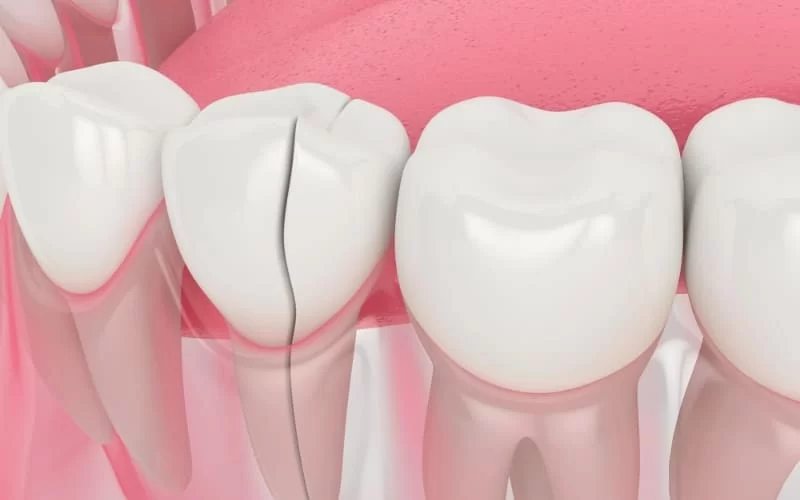
- Understanding-Cracked-Tooth
- Safe-Home-Remedies
- When-To-See-A-Dentist
- Real-Life-Examples
- Preventing-Future-Cracks
1. Understanding Cracked Tooth: What Happens and Why It Matters
A cracked tooth may seem like a minor dental issue, but it can quickly escalate into serious pain and complications if left untreated. When a tooth cracks, it means that the hard outer enamel has split, exposing the sensitive inner layers like dentin or even the pulp. This can cause sharp pain when chewing, sensitivity to hot or cold, and in some cases, infection. Understanding how to treat cracked tooth at home is crucial for managing discomfort and preventing further damage before you can get professional care.
Not all cracks are visible to the naked eye. Sometimes, the pain or discomfort is the first indicator. This makes timely action essential. Cracks can result from trauma, biting hard foods, grinding teeth (bruxism), or even natural wear and tear. Knowing the cause can help you apply the right home remedies and avoid worsening the injury.
1.1 Types of Cracks and Their Severity
There are several types of tooth cracks, ranging from minor craze lines that only affect the enamel to severe vertical root fractures. Home treatment is mainly aimed at minor to moderate cracks, where the tooth structure remains largely intact.
1.2 Why Immediate Care Matters
Ignoring a cracked tooth can lead to infection, abscess formation, and ultimately tooth loss. Home remedies offer relief but are temporary solutions. Prompt dental intervention remains the gold standard for preserving the tooth.
2. Safe Home Remedies to Treat a Cracked Tooth
While professional treatment is essential, there are practical ways to manage pain and protect the tooth at home. Here are effective strategies to ease discomfort and prevent the crack from worsening:
2.1 Pain Relief Techniques
Using over-the-counter painkillers such as ibuprofen can reduce inflammation and pain. Applying a cold compress externally on your cheek can also numb the area and reduce swelling.
2.2 Dietary Adjustments
Avoid chewing on the side with the cracked tooth. Stick to soft foods like yogurt, mashed potatoes, and soups. This reduces pressure and prevents the crack from expanding.
2.3 Temporary Protective Measures
Some people find relief by using dental wax or sugar-free gum to cover the crack temporarily. This can protect the exposed dentin from irritants like food particles and temperature changes.
2.4 Oral Hygiene Practices
Maintaining excellent oral hygiene is critical. Gently brush twice daily with a soft-bristled toothbrush and floss carefully to keep the area clean and avoid infection.
2.5 Natural Remedies That May Help
Some users report benefits from rinsing with warm saltwater, which can reduce bacteria and soothe irritated gums. Clove oil, known for its natural analgesic properties, applied cautiously on the affected tooth can offer temporary pain relief.
For those seeking trusted products and professional advice, Dentistry Toothtruth provides tailored recommendations for cracked tooth care and related dental needs.
3. Recognizing When Professional Dental Treatment Is Necessary
Home care can only go so far. Recognizing the signs that require urgent dental attention is critical to saving the tooth and preventing complications.
3.1 Signs That Demand Immediate Care
If the pain becomes severe and persistent, or if swelling and fever develop, this likely indicates infection. Visible displacement of the tooth or fragments breaking off also requires prompt professional intervention.
3.2 What Dentists Can Do Beyond Home Remedies
Dentists can perform treatments such as bonding, crowns, root canals, or even extraction if the crack is too severe. Early diagnosis and treatment greatly improve the prognosis of cracked teeth.
4. Real-Life Stories: Managing Cracked Teeth at Home Before Seeing a Dentist
Consider the story of Laura, who chipped her tooth while eating popcorn. At first, she felt only mild discomfort but noticed increasing sensitivity over days. She started rinsing with saltwater and avoided chewing on that side. When pain intensified, she visited her dentist, who placed a crown to protect the tooth. Laura’s early home care helped minimize pain and kept her comfortable until professional care was available.
Similarly, James experienced a cracked molar after a sports injury. He used over-the-counter painkillers and a cold pack, and consulted Dentistry Toothtruth to find protective dental products recommended for cracked teeth. His prompt actions prevented infection and eased anxiety.
5. Preventing Future Tooth Cracks: Lifestyle and Care Tips
Once you’ve treated a cracked tooth at home or professionally, prevention is key to avoid recurrence. Here are some strategies:
5.1 Avoid Hard and Sticky Foods
Foods like ice, hard candy, and sticky sweets can stress teeth and increase the risk of cracks. Moderating these can protect your teeth’s integrity.
5.2 Address Teeth Grinding
Many cracked teeth stem from bruxism. Using a night guard recommended by your dentist can protect teeth from excessive pressure during sleep.
5.3 Regular Dental Checkups
Routine exams help catch minor cracks early. Dentists can monitor any damage and suggest preventive treatments before cracks worsen.
For personalized advice and quality dental care products, Dentistry Toothtruth offers a variety of solutions to help maintain strong, healthy teeth and prevent damage.







 Seung H. Baek, DDS, Inc.4.0 (19 review)
Seung H. Baek, DDS, Inc.4.0 (19 review) St Anthony Park Dental Care: Grossmann, Todd A DDS5.0 (4 review)
St Anthony Park Dental Care: Grossmann, Todd A DDS5.0 (4 review) The Gorman Center for Fine Dentistry4.0 (299 review)
The Gorman Center for Fine Dentistry4.0 (299 review) Dr. Patricia Turley /Manhattan Beach/South Bay/CA4.0 (30 review)
Dr. Patricia Turley /Manhattan Beach/South Bay/CA4.0 (30 review) Smile Design Dentistry Orange Blossom4.0 (354 review)
Smile Design Dentistry Orange Blossom4.0 (354 review) Aurora Dental Care4.0 (153 review)
Aurora Dental Care4.0 (153 review) The Importance of Oral Health Education During Pregnancy for a Healthy Pregnancy
The Importance of Oral Health Education During Pregnancy for a Healthy Pregnancy Best Tips for Brushing Your Teeth Properly for Healthy Gums: Essential Techniques for Oral Health
Best Tips for Brushing Your Teeth Properly for Healthy Gums: Essential Techniques for Oral Health Why Skipping Dental Checkups Can Lead to Bigger Oral Health Problems
Why Skipping Dental Checkups Can Lead to Bigger Oral Health Problems Advantages of Porcelain Dental Restorations
Advantages of Porcelain Dental Restorations How Can Diabetes Cause Tooth and Gum Problems? Preventing and Managing Oral Health Issues
How Can Diabetes Cause Tooth and Gum Problems? Preventing and Managing Oral Health Issues Healthy Habits for Promoting Good Oral Health and Hygiene: Tips for a Healthy Smile
Healthy Habits for Promoting Good Oral Health and Hygiene: Tips for a Healthy Smile